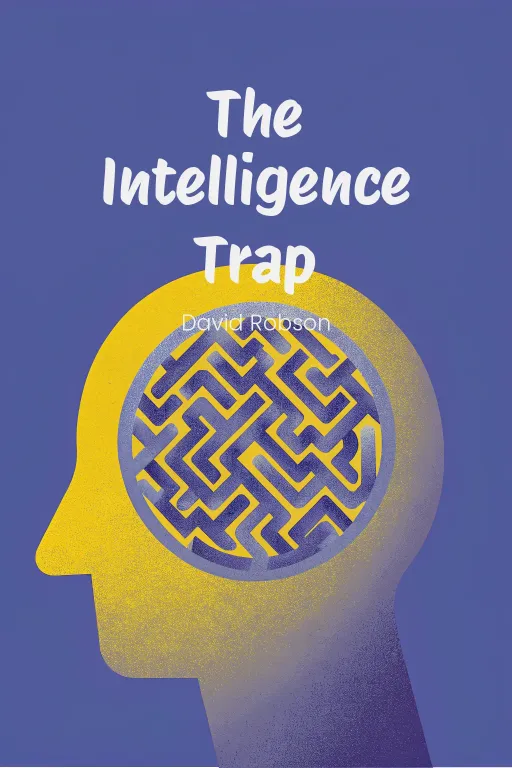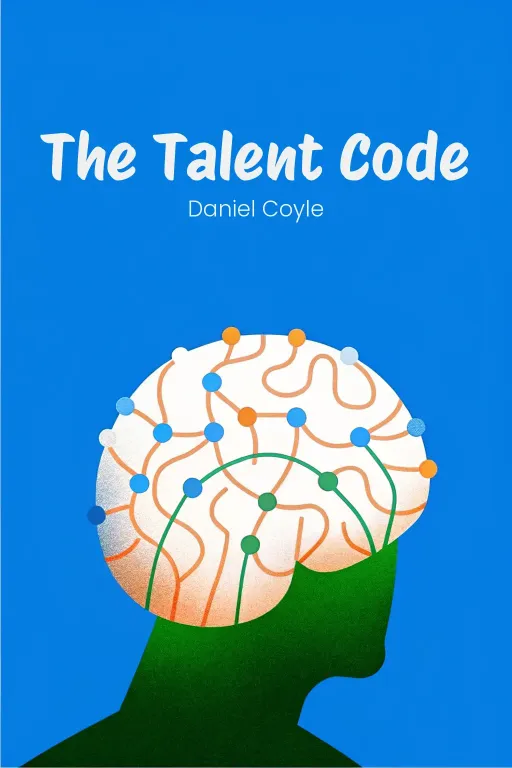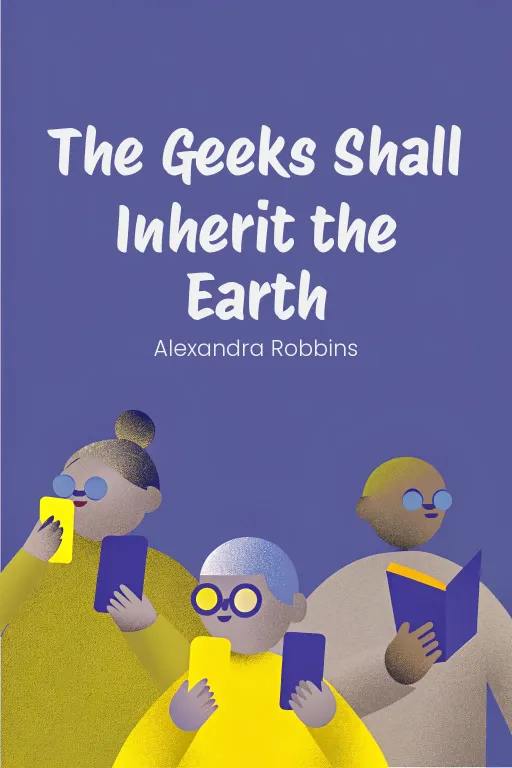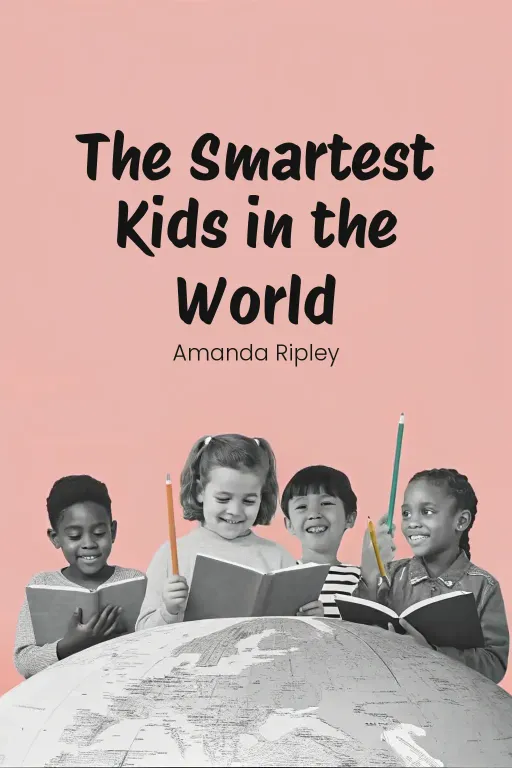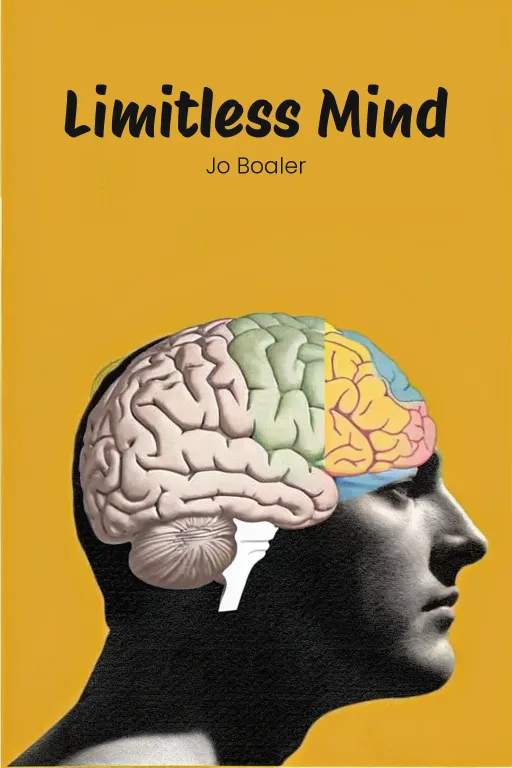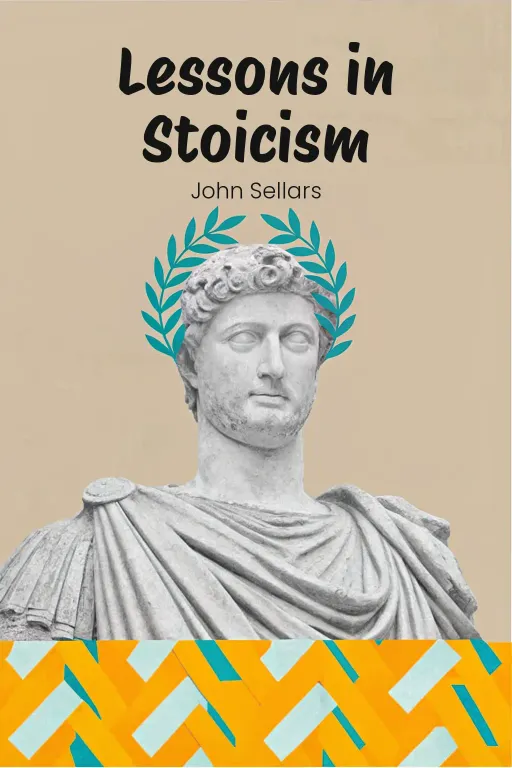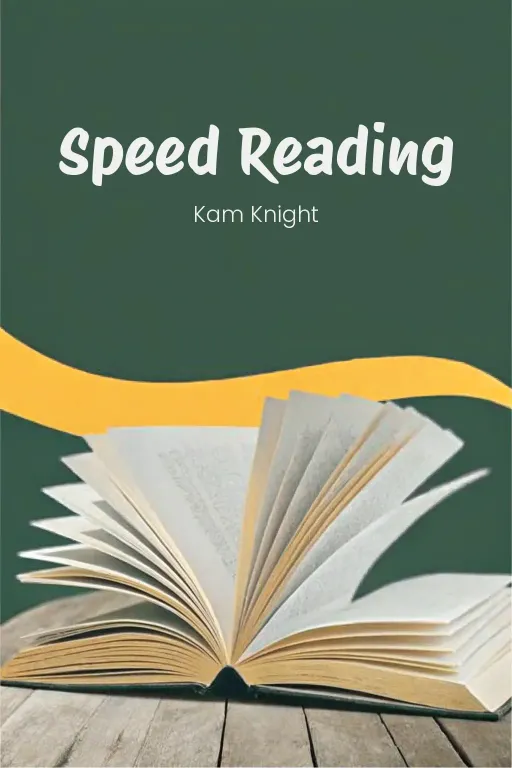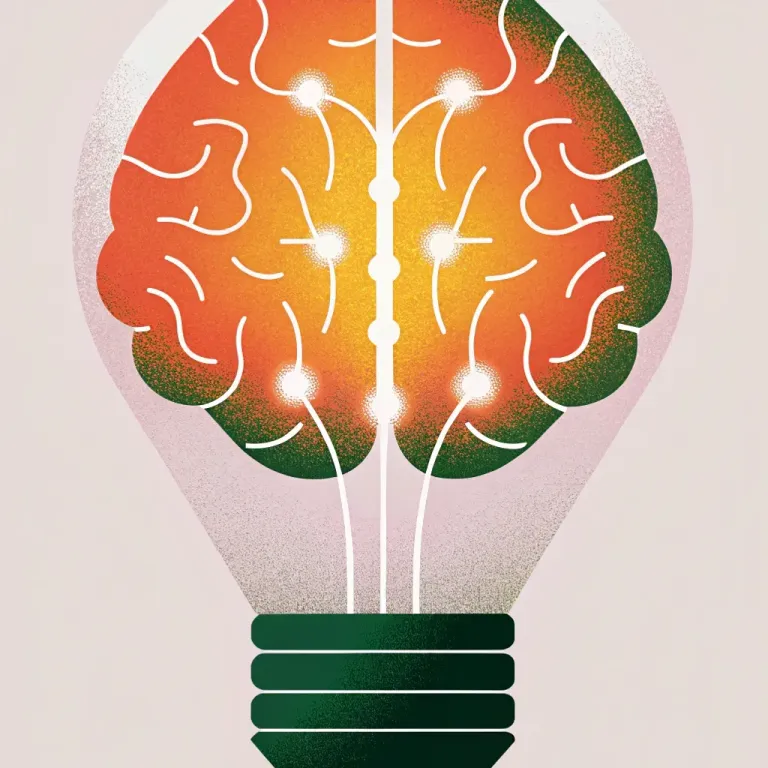
Master Skills: Become an Expert Learner
Podcast by Beta You with Alex and Michelle
Mastering the Skills for Success in Life, Business, and School, or, How to Become an Expert in Just About Anything
Master Skills: Become an Expert Learner
Part 1
Alex: Hey everyone, welcome back! Today we're tackling something super interesting: how we actually learn. I mean, have you ever wondered why some skills just stick with you forever, while others disappear the second you need them? Michelle: Tell me about it! Remember my high school Spanish? Completely gone. Vanished into thin air the moment I walked out of the exam. Alex: Precisely! Now, what if I told you that learning isn't really about innate talent or just cramming the night before, but something we can all get better at? It’s both an art and a science, really. And that's exactly what this book, “The Science of Learning”, is all about. Michelle: Hmm, so this isn’t just another one of those generic "study smarter, not harder" guides, is it? Alex: Oh, not at all. It's a much deeper exploration of how we actually develop expertise. It's packed with personal anecdotes, case studies, and solid science. It really unpacks everything from what motivates us to how we reflect on our experiences, showing that learning is a skill you can develop, not some secret talent you were born with. Michelle: Okay, you've piqued my interest. So, what's the plan for today's deep dive? Alex: We're going to break it down into three key areas: First, we'll explore the psychological basis of learning – what really makes our brains work when we're trying to learn something new. Then, we'll look at the disciplined path to expertise. We'll talk about how deliberate practice and feedback can either make us or break us. And finally, we'll examine the art of applying knowledge in the real world, you know, kind of like a master craftsman creating something amazing from raw materials. Michelle: Sounds pretty ambitious, Alex. So, we're going from initial curiosity to achieving mastery, hitting all the important points along the way? Alex: Exactly! And trust me, Michelle, this is one learning journey you definitely don't want to miss.
Foundations of Learning
Part 2
Alex: Okay, let's dive in. What actually fuels our ability to learn? We’re talking about the basic psychological and cognitive stuff here. It’s really the groundwork, covering both the ‘why’ and the ‘how’ of learning. Michelle: So, we're basically looking at the engine – what makes our brains actually want to learn and then, you know, stick with it. Fascinating. Alex, lay it on me: why and how do we learn best? Alex: It all starts with meaning and motivation. If you find something personally relevant, it just ignites your brain. The book uses this great Lego analogy – a kid building something because it means something to them. It's more than just stacking bricks; their imagination and investment are driving everything. Michelle: Aha, instead of "Why do I have to learn this," it's "Why do I want to learn this?" Alex: Precisely! Think about how this plays out in the real world, like at work with something called job crafting. People reshape their tasks to better connect with their interests, right? Like, a teacher who loves hands-on activities might make their lessons more project-based. That taps into their passion, and naturally, their motivation. Michelle: Makes sense. So, if I'm, say, slogging through a self-help book, should I just tell myself, "This will make me a better manager" instead of "Ugh, I have to finish this"? Alex: Definitely! That's where expectancy-value theory comes in. If you believe you can succeed and you see the value in it, your motivation soars. A math student who wants to be an engineer sees calculus as a step towards their dream, not just pointless work. That drives them forward, even when it gets difficult. Michelle: So, what if you're not naturally interested in say... calculus? Is there any hope of motivating themselves? Alex: That’s where you find a “hook”. The book talks about how making small, meaningful shifts can change your entire perspective. Connect it to something you enjoy, or a future goal. And once you're motivated, memory becomes crucial – how you keep and recall that information to keep learning. Michelle: Memory... that's a tough one for a lot of us. How do you actually get your brain to, you know, remember things longer than a weekend? Alex: Two words: retrieval practice and spaced learning. Let's start with retrieval practice. The concept is simple: you learn by actively pulling information out of your brain, not just passively reading or highlighting. Close your textbook after you read a chapter on biology and quiz yourself. Michelle: So, ditch the all-nighter spent rereading the same paragraph twenty times? Alex: Exactly. Studies show that retrieval practice not only helps you remember but also strengthens the connections in your brain, making it easier to recall stuff when you're under pressure. It's like, you're exercising your memory, instead of just letting it be passive. Michelle: Okay, I see the momentum with retrieval practice. What about spaced learning—how’s that work exactly? Alex: Spaced learning is all about timing. Instead of cramming, you revisit the material at intervals, with gaps that increase over time, okay? Let's say you're learning new vocabulary in another language. You review one set of words on Monday, then again on Friday, then again a week later. This spacing mimics the natural process of forgetting and relearning, which actually strengthens your memory. Michelle: So, it's like watering a plant over time instead of drowning it all at once, right? Keeps it alive and thriving. Alex: Exactly. Think of your brain as a storage system. Spaced learning helps lock those memories into long-term 'files' instead of dumping them into the short-term 'folders' where you'll eventually lose them. If you're pulling knowledge out through retrieval practice and strategically spacing your learning, the results are very good. Michelle: Sounds pretty useful. Any proof that this actually works in the real world? Alex: There's a really interesting study around a program called "Success for All." Students who were taught using these principles – like spacing out the workload and building in retrieval tasks – did far better than those taught with traditional methods. It's not just theory; it works. Michelle: That's interesting. But I’d like to hear something a bit more hands-on or fun. Anything like that in the book? Alex: Oh, this one you’ll love. There was an experiment in New York where students were learning to throw darts in phases, right? One group learned about the mechanics and physics of throwing first, and one group just started playing gameplay right away. Guess what happened. Michelle: The ones who went slow and steady did better? Alex: Bingo. By taking the time to really understand the basic mechanics before they tried to score, those students learned skills they could actually use. It really shows how step-by-step learning is a much better process than just jumping in without any preparation. Michelle: That's a great analogy for life, actually. We rush into things without doing the foundational work and wonder why we don't succeed. Alex: Exactly! It all comes back to how meaning and memory are connected. By engaging with material in ways that feel meaningful, and by using memory techniques such as spacing and retrieval, you will not only learn the material more effectively, but you will also enjoy studying. It's about being a smarter student, not working harder. Michelle: Smarter learning, meaningful goals… I'm starting to see how this is the foundation for mastering pretty much anything. But of course, I'd still like an app that just downloads the knowledge into my brain instantly. Alex: Sadly, no shortcuts here. But by connecting with the ‘why’ of learning and following these principles, you’re setting yourself up for a lifetime of growth.
Developing Expertise
Part 3
Alex: So, understanding those basics really sets us up to dive into how expertise actually develops. Now we're getting to the core of the book—turning knowledge into, you know, real mastery, bridging that gap between theory and practice. Michelle: Ah, shifting gears from why we learn to how to become a master. Yeah, that's where things get interesting. Alex: Definitely. The book focuses on four key things for building expertise: deliberate practice, feedback, metacognition, and emotional regulation. Think of it like putting together a high-performance engine. Deliberate practice, combined with good feedback, is like the fuel that powers it. Michelle: Deliberate practice—so it's not just about putting in the hours, right? Because if that were the case, I'd be a pro golfer by now, considering all those afternoons I've spent at the driving range. Alex: Exactly! Just logging time isn’t enough. Deliberate practice means really targeting specific improvements, and using good feedback to adjust your approach. The book talks about surgeons in training, for example. A surgical resident practicing sutures without guidance might just repeat the same little mistakes over and over. However, with a mentor pointing out things to refine—like knot tension or needle angle—they can course-correct and improve dramatically faster. Michelle: So, it's not just "keep doing it," but more like, "do it, figure out what went wrong, fix it, and repeat." Alright, what about simpler situations outside of surgery? Any everyday examples? Alex: Absolutely. The book mentions the basketball coach Dwane Samuels. He doesn't just let players shoot hoops all day. Instead, he focuses on really detailed mechanics—how their footwork lines up, the angle of their elbows, the follow-through on their shot. Based on his feedback, those players focus on those little refinements session by session, and the improvements really stack up. The difference it makes is pretty remarkable. Michelle: Yeah, that makes sense. I've seen enough bad habits develop in sports without that kind of correction. But, doesn't it get exhausting? I mean, constantly being critiqued? Alex: That's where metacognition comes in, which is another key piece of the puzzle. Metacognition is basically thinking about how you're thinking—stepping back and evaluating your own learning process. Michelle: Wait, so expertise isn't just about avoiding mistakes, but also figuring out why they happen in the first place? Alex: Exactly! Good learners spot the gaps in their understanding and adapt. For instance, the book cites a study about learning about household items, where participants who asked themselves reflective questions—like "Why does this work?" or "How does this relate to what I already know?"—actually absorbed and retained more information than those who just memorized. Michelle: Okay, hang on. How would you even apply that to something like calculus? You can't just "reflect" your way through differential equations. Alex: Actually, you can. Say you’re struggling with a calculus problem. A metacognitive strategy would be to break it down – ask yourself, "What's the specific problem here? Is it the derivative or my algebra skills?" Or rephrase the problem: "Have I seen something similar before, and how did I solve it then?" This kind of process not only helps you pinpoint where you’re stuck but also shifts your focus toward figuring out why. Michelle: So instead of just banging your head against a wall until things click, you're strategizing your approach. Unpacking the problem, seeing it clearly—like putting together puzzle pieces. Alex: Exactly, and metacognition gives you clarity and control. Now, we can't ignore the elephant in the room: emotions. The book breaks down how emotions can throw off your learning, or, if you manage them well, really boost it. Michelle: Oh, no doubt. Let me guess: stress is the big enemy here? Alex: Definitely. Stress and anxiety can actually mess with how your brain stores and recalls information. Think about test anxiety—it can make even well-prepared students forget everything under pressure. So, emotional regulation becomes super important in those make-or-break situations. Michelle: Right, so regulating emotions…How does someone actually do that? Because telling someone to "calm down" is about as helpful as throwing water on a grease fire. Alex: True. The book suggests self-talk as a great tactic. Talk to yourself in the second person—saying "You've got this" instead of "I've got this." It might sound small, but research shows this little change adds psychological distance, making it feel like you’re coaching yourself instead of just freaking out. Michelle: That's pretty slick. It's like having a calmer version of yourself on standby to help you when you're in a panic. Anything else for managing those emotional roadblocks? Alex: Another cool approach is cognitive reframing—turning stress into a challenge instead of a threat. So, thinking, "This calculus test is a chance to show what I've learned," rather than, "If I fail this, I'm doomed." It’s all about how you look at the situation. Michelle: Got it—frame your emotions as tools, not distractions. So, how does emotional regulation tie back into mastering something? Alex: It’s about keeping you in it for the long haul. You might have amazing feedback, or great metacognitive habits, but if you don't have emotional resilience, any little setback can feel like the end of the world. That’s why building that solid emotional foundation keeps people motivated and consistent over time. Michelle: So, where does the growth mindset fit into all this? Is that what connects everything? Alex: Definitely. A growth mindset is kind of like the glue that holds it all together. Carol Dweck's research shows that people who believe their skills can improve through effort—instead of seeing them as fixed traits—treat failure as a learning opportunity, not the end of the road. The book talks about a study that showed how shifting a teacher’s language from “You’re so smart” to “You worked really hard” teaches kids to value progress over just being perfect. Michelle: Which means if you fail, you're not a failure—you just haven't cracked it yet. That's a pretty freeing way to look at learning. Alex: Exactly! And when you think about expertise, it’s rarely a straight line—it’s about growing flexible strategies and the resilience to keep going when it gets tough. That’s where feedback, metacognition, emotional regulation, and mindset all come together. Michelle: Yeah, I see how all those pieces build on each other. Feedback keeps you on track, metacognition sharpens your focus, emotions keep you steady, and mindset keeps you moving forward. It's all connected. Alex: That’s exactly the point—it’s a system for transforming knowledge into mastery. So, whether you’re learning basketball, calculus, or just navigating life, these strategies give you a framework to really become an expert. Michelle: Well, Alex, I'm sold—though I think I need to start reflecting on all my “past” bad learning habits first.
Application and Mastery
Part 4
Alex: So, once you've developed that expertise, the real magic happens when you start applying those skills. This is where all that hard work pays off, and we see foundational knowledge combined with those honed skills creating real, tangible results and impactful learning experiences. It’s not just about knowing, it's about doing, adapting, and making a difference. Michelle: So, we're talking about going from intense practice to the actual performance? From the training montage to the championship game? Alex: Exactly! And a key element here is understanding that teaching is actually a great way to reinforce what you already know – it's called the Protégé Effect. Basically, by teaching others, you learn better yourself because you have to break down complex ideas, and re-package them in a way that’s easy for someone else to understand. Michelle: Right, so it's not, “those who can't do, teach,”—definitely not that! More like, “Teaching makes you a better doer,” perhaps? Alex: Exactly, much better, Michelle. The book provides a really interesting example about this from a workshop leader in music education named Melick. He runs these hands-on workshops where people create music using everyday objects – you know, pots, pans, buckets, that kind of thing. The thing is, part of the workshop involves participants teaching rhythms to each other. Michelle: Wait, so you're saying people actually stand up there with a cooking pot and explain syncopation? Alex: That's right. And by doing that, they're actually forced to grasp timing, beat structure, and sound mechanics on a much deeper level for themselves. Plus, it's collaborative, it creates this cool community vibe. By needing to articulate their own learning to someone else, they solidify their knowledge, while at the same time building a connection with others. It's undeniable proof that teaching isn’t just about helping someone else; it's one of the most powerful tools for mastering a skill yourself. Michelle: Okay, that makes sense. Explaining something “really” does force you to confront any gaps in your own knowledge. But, does this approach work in less creative, more rigid fields? Like, quantum physics, perhaps? Something less, "bucket-friendly?" Alex: Absolutely, the mechanism is universal. I mean, even in highly technical fields, teaching still forces learners to organize their knowledge in a logical sequence, translate unfamiliar jargon into accessible language, and “really” reflect on the 'why' behind everything. Whether it's the rhythms of music or the complexities of quantum mechanics, when you teach, you solidify your own expertise. Michelle: So step one for mastery: teach others to teach yourself. I like that. What's next? Alex: Well, mastery isn't about staying in one lane, it’s about moving beyond boundaries, exploring uncharted territories. The book actually uses two iconic examples – Jackson Pollock and Miles Davis – to showcase this in action. Michelle: Pollock and Davis, two legends. Alright, tell me how their mastery involved “breaking the rules," because that sounds like where we're headed. Alex: Exactly. Let’s start with Pollock, the pioneer of abstract expressionism. He actually owed a lot to the influence of Mexican muralist David Alfaro Siqueiros, who encouraged him to experiment with unconventional materials and techniques. Pollock took that idea and basically ran with it, abandoning brushes altogether and choosing to drip, splatter, and pour paint directly onto canvases placed on the floor. Michelle: So, Pollock looked at a paintbrush and thought, “Nah… not for me.” Alex: Pretty much! By rejecting tradition, he transformed painting into this full-body activity – walking, moving, and almost dancing around his canvases. The beauty of Pollock's technique is that it combined disciplined control with deliberate, unpredictable chaos. It wasn’t just random. It was rooted in mastery of the medium. But it went to a totally new level! Michelle: So, he didn't just throw paint like some tortured artist for fun – there were rules, rhythms, and layers that he was actively shaping. Freedom built on a foundation of expertise. Hmm. Alex: Precisely. And Miles Davis is a perfectly parallel example, “really”, in music. In his groundbreaking album, Kind of Blue, Davis ditched the usual complex chord progressions of jazz and instead focused on modal scales, which allowed his band to drift into freer, more improvisational melodies. Davis gave pretty minimal instruction and letting the musicians create spontaneously within those specific modal frameworks. Michelle: Okay, so Miles Davis basically redefined jazz by telling his band, “Just feel it out”? Alex: In a way, yes. His trust in the musicians' expertise, combined with his innovative structure, led to an album that shaped modern jazz forever. The lesson here, though? Mastery doesn't mean staying safely within predefined limits; it's about redefining the rules themselves, using foundational skills as a launching pad. Michelle: I love that. Pollock and Davis, proving that mastery is about embracing uncertainty and taking calculated risks. But, how can the rest of us mere mortals push boundaries if we're not dripping paint or making albums? Alex: Well, that's where innovation meets accessibility – and that comes in the form of technology. Today, technology offers ways to experiment, practice, and get feedback that would have been completely unimaginable during Pollock and Davis's time. Michelle: Let me guess—virtual reality paint splatter, maybe? Or perhaps AI jazz accompaniments? Alex: Not too far off! In fields like medicine, simulations provide incredible learning opportunities. Medical trainees, for example, use virtual patient scenarios to practice diagnosis and treatment. So, if they're working on a simulated patient that's showing symptoms of heart failure, those scenarios let them try different interventions, see outcomes in real time, and get immediate feedback - all in a risk-free environment. Michelle: I bet that's a pretty huge step up from cadavers and decades-old textbooks. So, they're essentially rehearsing life-and-death decisions with zero consequences? Alex: Exactly! And there's another technological tool that works wonders for mastery, and that's spaced repetition! See, this software optimizes learning by timing review sessions right before you're about to forget something. Imagine trying to learn Italian vocabulary, for example. Instead of cramming thousands of words all at once, the app brings up "pizza margherita" or "grazie" exactly when your recall begins to fade, reinforcing that memory over time. Michelle: So, the tech does all the hard work of figuring out the timing, and you just have to keep showing up? Sounds like a win for lazy learners. Alex: Not lazy, efficient! By combining these technologies, we're seeing mastery become more personalized, immersive, and conceivable – even in high-stakes fields. But even more importantly, mastery doesn't happen in isolation. It thrives in community. Michelle: Ah, the whole "it takes a village" philosophy. So how does community fit into all of this? Alex: Because collaboration creates opportunities that solitary work simply can't. The book even describes classrooms where traditional desks are replaced with clusters for group discussions and group projects. This set-up basically fosters interaction, and allows learners to share perspectives and solve problems together. Michelle: Let me guess – they came up with better solutions together than they would have on their own? Alex: Precisely. And it doesn't even end there. Peer influence, and teamwork play a “really” crucial role, especially when solving real-world issues, like designing eco-friendly products, or tackling coding challenges. Not only does this build expertise, but it also connects the learners to authentic, real-world applications. Michelle: Okay, so it's less of a solo performance, and more of an orchestra approach: everyone playing their part, and making the whole greater than the sum of its parts. Alex: Oh, that's beautifully said, Michelle! But, there's one thing that's an absolutely critical piece – and it's reflection. Without reflecting on what worked, what didn't, and why, it's actually impossible to truly apply knowledge and sustain that natural curiosity. Michelle: Reflection? Sounds like journaling “Today I learned…” at the end of study sessions? Alex: Well, it's a little more structured than that, “really”. Reflection asks you to “really” evaluate yourself: What did I struggle with? What clicked for me? How can I improve next time? It transforms your mistakes into opportunities, and it helps learners connect the dots between the past and their future. Michelle: So, it's just like a personal post-game analysis, breaking down plays, and figuring out how to show up stronger in the next round! Alex: Exactly! And, that habit of reflection leads to lifelong curiosity – a desire to constantly ask questions, staying open to innovative ideas, and seeing learning as an evolving adventure, not just a finish line. Michelle: So mastery, at its core, is about translating a skill into action, driving innovation, collaborating, and always being ready to adapt. It's a lot more nuanced than just saying "I'm an expert now." Alex: Absolutely. The book shows that applying knowledge “really” isn’t just the end of learning – it’s “really” only the beginning of the impact it can actually have in the world.
Conclusion
Part 5
Alex: So, Michelle, to wrap things up, "The Science of Learning" basically shows us that learning isn't about, you know, cramming the night before or suddenly becoming a genius. It’s more of a journey, built on making sense of things, staying motivated, and, well, actually remembering stuff! And this journey is boosted by things like really focused practice, getting feedback, understanding how you learn, and, of course, keeping your emotions in check. Ultimately, it's about using what you learn in the real world, where teaching others, innovating, and connecting with people really bring everything together. Michelle: Right. And I think that this idea—that mastery isn't just about doing, but also about applying, like pushing boundaries and thinking outside the box, almost like how Pollock approached painting or Miles Davis approached jazz. You know, also, relying on things like technology and teamwork to amplify what we're capable of. That's where the magic of learning actually happens. It's really all about staying curious, always reflecting, and constantly growing and adapting. Alex: Exactly! So, here’s the main takeaway: Whether you’re trying to learn a new skill, guiding someone else, or even trying to change the game somehow, mastery isn’t a place you arrive at. It's really more like a way of thinking and living. Learning is something everyone can do, and it's honestly never too late to jump in. Michelle: Agreed. So, whether you're mastering Spanish, or calculus, or, I don’t know, throwing darts like a pro... the science behind it all actually stays the same. Start small, be deliberate, and keep on adapting. Alex: And hey, don’t forget—the most important part is to really enjoy the ride! Learning isn’t just about ticking off achievements; it’s about evolving into the best version of yourself. Michelle: Alright, Alex, challenge accepted! Now, where's that app you mentioned for retrieval practice? I think I need it already. Alex: Well, the first step is always just showing up, right?


